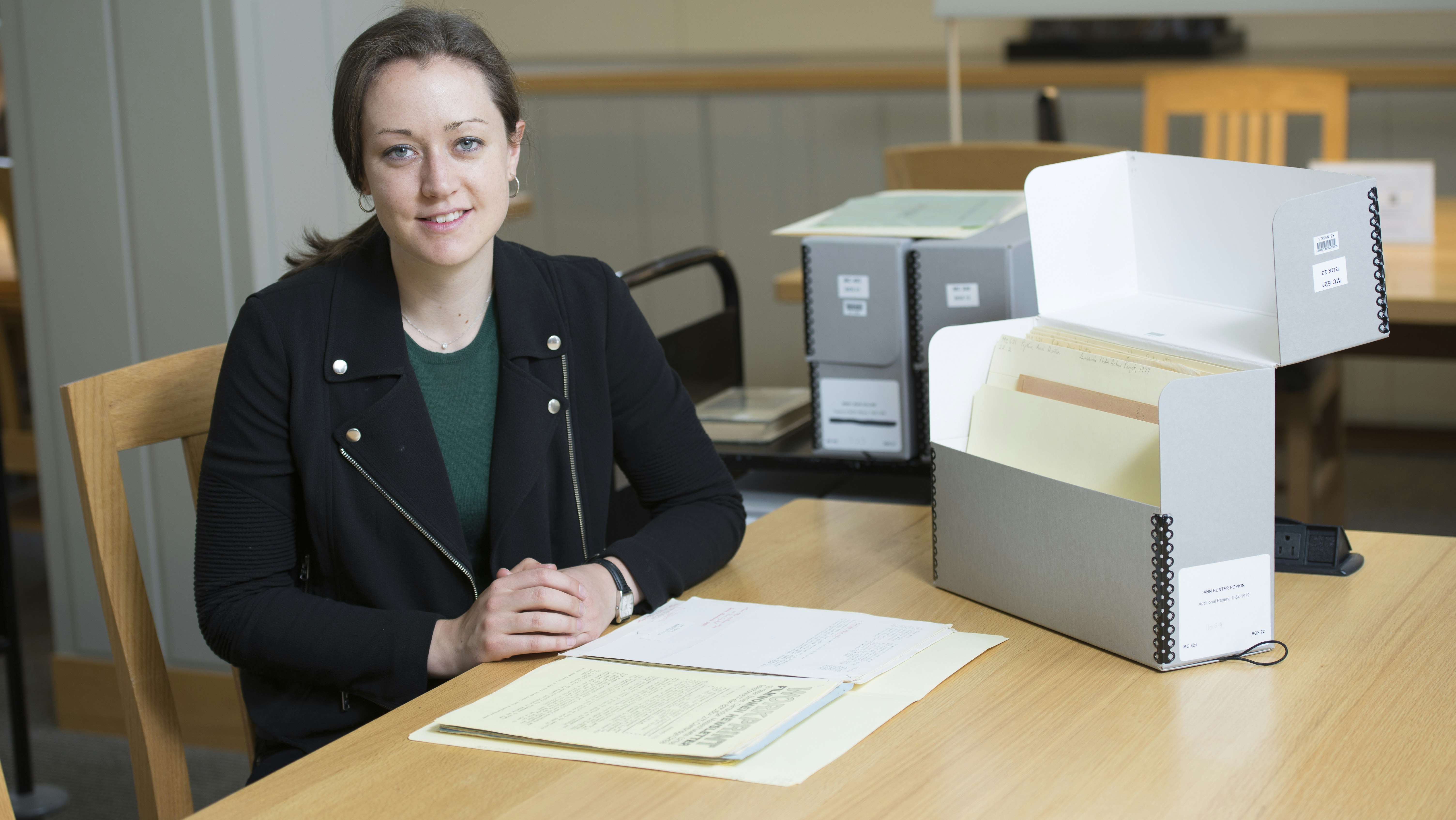The Site of My Favorite Classes

In the Schlesinger Library, Magdalene Zier found an invaluable resource.
My first experience with the Schlesinger Library was during the spring of my sophomore year, when I enrolled in Laurel Thatcher Ulrich’s studies of women, gender, and sexuality seminar, Well-Behaved Women Seldom Make History. As I crossed Radcliffe Yard toward the grand red-brick façade, I was expecting an archive filled with uppity New England ladies; I was dubious that anyone but the best-behaved had made history here. As the course got under way, however, and I began my research on a group of Radcliffe bluestockings who insisted on their right to wear pants, I learned of the thousands of disobedient women who left their mark on Harvard’s history and the countless more who earned a place in the Schlesinger’s archives.
In addition to Professor Ulrich’s seminar, I have taken two courses that encouraged me to use the Schlesinger’s collections. Junior spring, I took Staging the Civil War: From the Archive to the A.R.T. This collaboration between the Schlesinger and the American Repertory Theater alternated between master classes with prominent theater makers and exercises in archival research. For my final project, a short play about Mary Todd Lincoln’s relationship with her black dressmaker, Elizabeth Keckley, I used the Schlesinger’s extensive offerings to research mourning clothing during the Civil War, namely the gradual infiltration of dark colors into the illustrated pages of Godey’s Lady’s Book. This past fall, in Bodies in Flux: Medicine, Gender, and Sexuality in the Modern Middle East, I managed to work visits to the Schlesinger into the majority of my assignments and spent the semester researching and writing about Edith Spurlock Sampson, the first black delegate to the United Nations.
This past year, a Carol K. Pforzheimer Student Fellowship provided me with the support to undertake extensive independent research for my senior thesis—both at the Schlesinger and at archives in Atlanta, New York City, and Washington, DC. Although the Schlesinger does not contain any of the papers of the subjects of my thesis—African American women who wrote plays protesting lynching from 1910 to the 1930s—its rich collections on black women in the 20th century provided me with valuable foundational knowledge. I am so grateful for the Schlesinger’s rich collections and indebted to its generous staff for making the library the site of my favorite classes and a launching pad for individual research.
Magdalene Zier is studying history and literature with a secondary in African American studies. After graduation, she will spend the summer in the NAACP’s Baltimore headquarters as its W.E.B. Du Bois Public Policy Fellow.







